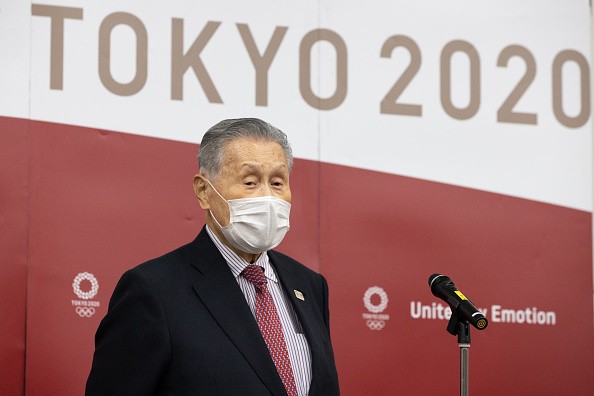
Tokyo Olympics Games fate has been shrouded in mystery between a surging Covid-19 pandemic and a global search for Covid-19 vaccines.
In an attempt to save the Tokyo Games, the International Olympic Committee is partnering with the World Health Organisation to have all athletes vaccinated, The Telegraph announced on Friday.
The report said that rapid monitoring of COVID-19 vaccines to competitors where national programs have yet to begin is the key priority in the Tokyo Olympic Committee strategy.
Japan'sJapan's top government spokesman said it is not a requirement for the widespread distribution of Covid-19 vaccines to go ahead with the games.
"We are considering comprehensive measures to hold safe and secure games, even without making vaccines a condition," Chief Cabinet Secretary Katsunobu Kato told a news conference.
READ: Police Probe the Posting of Claudia Conway's Censored Pic on Her Mom's, Kellyanne Conway, Twitter Account
Since, three weeks before the first vaccine doses had become publicly available in the United Kingdom last November, President Thomas Bach of the International Olympic Committee (IOC) said he was hopeful that a successful covid-19 vaccine would allow the Games to continue safely.
Bach said organizers would "undertake a great effort" to ensure that "Olympic participants and visitors will arrive (in Tokyo) vaccinated," while also denying suggestions that vaccines will be mandatory for athletes - something reiterated during a conference call on Wednesday by Tokyo 2020 CEO Toshiro Muto.
A point of controversy is likely to be where Tokyo Olympic participants rank on the vaccine's priority list. The general opinion amongst athletes is that they are prepared to wait.
Suga said Japan would launch coronavirus vaccinations in late February at a news conference on Jan. 7. When comprehensive steps against the virus are taken, the climate will change, he said, demonstrating his belief that vaccines may be a game-changer.
The vaccination process for covid-19 vaccines is expected to start in Japan by late February, beginning with medical staff, followed by people from late March aged 65 or older, then people with pre-existing conditions and elderly caregivers.
Challenges include the availability of vaccines to developing countries, what to do with the avoidance of vaccinations by Olympic and Paralympic athletes, and dangers associated with adverse effects from vaccines.
Furthermore, the efficacy of vaccines against coronavirus variants remains uncertain.
ALSO READ: State Attorneys General Remind Biden Any Unconstitutional Actions Will Not Go Unchallenged
Tokyo Olympics fights Covid-19 challenges in Covid-19 vaccines.
Compared to the Rio Olympics, there are more than 11,000 competitors from over 200 countries. In the age of coronavirus, particularly with the Games just six months away, the IOC has a substantial logistical and health challenge on its hands in supporting staff and media personnel.
Earlier this month, Tokyo was put under a state of emergency as cases of Covid-19 hit record levels, and members of the public across Japan are worried about keeping the Games given the current state of the pandemic.
A recent survey by Japanese public broadcaster NHK showed that 77% of respondents thought the Olympics should be delayed or entirely canceled again, with just 16% in favor of keeping them this year.
After positive tests on their flights, 72 of its players were put in strict, 14-day hotel quarantines before the tournament. Others were given five hours to practice in bio-secure bubbles per day.
Following fears that individual quarantined players would be disadvantaged during the tournament, the organizers changed the warm-up schedule. Also, they confirmed that players who had been put under rigid quarantine, practice sessions, gyms, and ice baths would be prioritized.
For a healthy Olympics, vaccines might be essential. In the absence of a mass vaccination campaign, the Tokyo Games could not survive very well, which would be a horrible consequence on several levels. It is much more confident that the result of lax or non-existent vaccine initiatives in many nations would be immeasurable misery. The problem, and a potential solution, lies therein.








